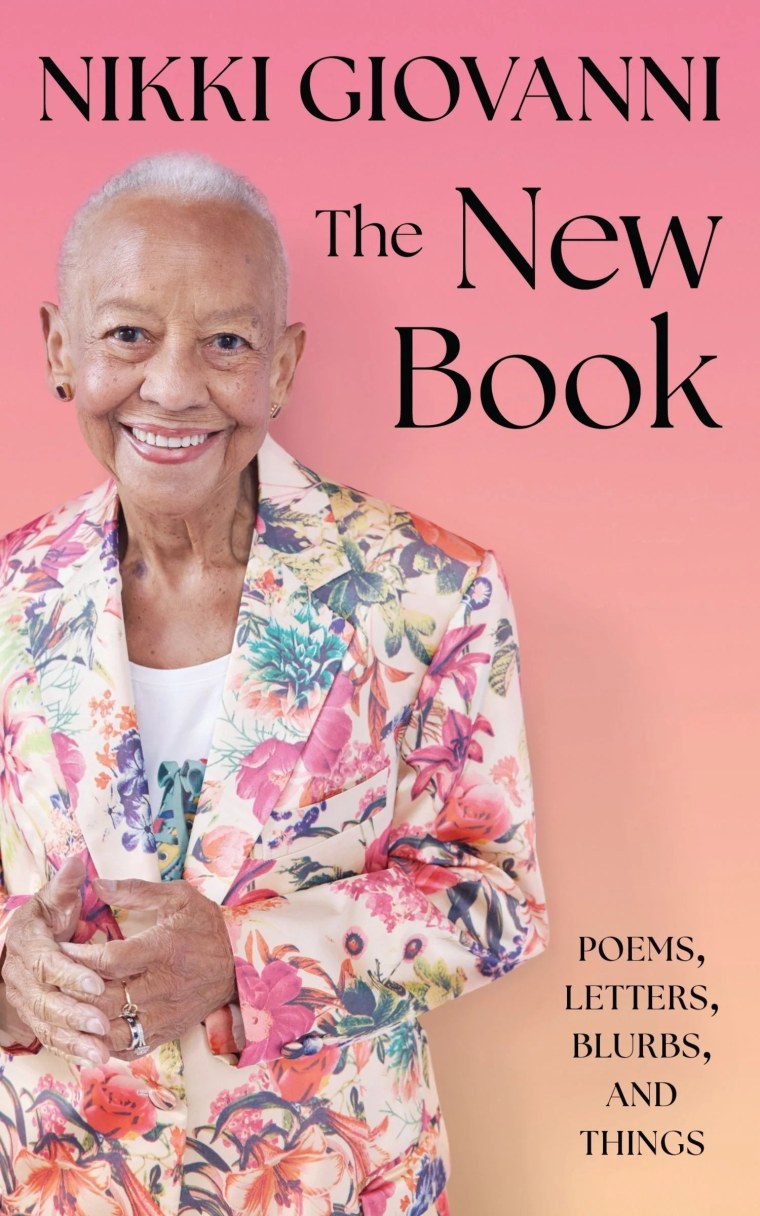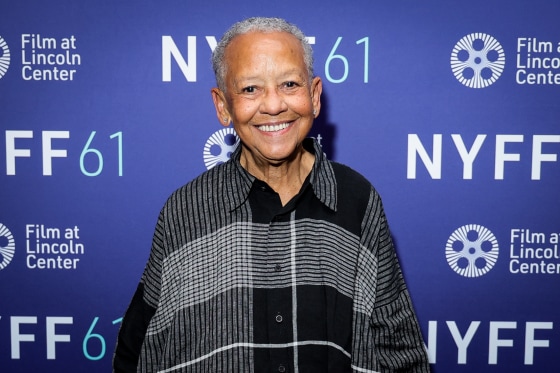Celebrated poet Nikki Giovanni published more than 30 books during her lifetime, and nearly a year after her death comes her final collection.
“The New Book,” out now, serves as both an elegy and a continuation of her decadeslong career. Completed before she died last year and shepherded to print by her wife, Virginia “Ginney” Fowler, this collection carries Giovanni’s work into a future that she knew she would not live to see due to her declining health, Fowler said.
“All the poems were written before the election,” Fowler said. “Nikki wanted to get people to vote.”
The book folds wisdom into instruction, speaking to the political landscape, her childhood in Knoxville, Tennessee, and the stories of her great-grandmother, who was a slave. Each poem insists on accountability, intention and action.
Jericho Brown, a Pulitzer Prize-winning poet and mentee of Giovanni’s, said the new collection shows “even more of who she always was.”
Brown said he remembers first encountering Giovanni not as a mentor, but as a celebrity whose poems he could recite word for word.
“Her work was close to me,” Brown said.

Over time, admiration became friendship. “She was first an inspiration, and then she was my friend and my mentor,” Brown said.
“The New Book” stands out among Giovanni’s catalog, Brown said, because she softened the boundaries that were once used to hide aspects of her life.
“Much more of her life is bleeding forth” in this book, he said. Along with sharing letters to her loved ones — even mentioning Brown and Fowler — she writes about the men in her life in “Fathers.”
Brown described it as “the most that Nikki Giovanni has ever said in a poem that is about her son’s father and, at the same time, about her own father.”
“Fathers” flows like her 1972 poem “Mothers,” which is about the women in her family and their relationship to each other.
The fearlessness and conviction in her writing were a trademark of Giovanni’s career for more than six decades, from her thoughts on the beauty of Black childhood in “Nikki-Rosa” (1971) to her later works dissecting Black resilience, like in “Quilting the Black-Eyed Pea (We’re Going to Mars)” from 2002.
Thematically, “The New Book” gives readers the same feeling as her previous works, while deepening her audience’s understanding of who she was.
Fowler said Giovanni “lived as she wrote.” Describing her as “authentic” in the real world and in her writing. “It’s what drew people to her,” Fowler said. “I have never seen another poet draw together so many different types of people. To me, that says something about the universality of her writing.”
They met in the fall of 1986 when Fowler nominated Giovanni for a position at Virginia Tech. At the time, Fowler was an associate professor and the associate head of the English department.
She said she didn’t think Giovanni would accept because she thought Giovanni was too famous to want to work for the school. But eventually the poet joined the department and the two worked together.
Fowler said some faculty resisted working with Giovanni. “I had a colleague that said, ‘I will not teach at a department that Nikki Giovanni is in,’ and he left,” she recalled. “I know that was racism.”
Yet Giovanni remained undeterred, and unapologetically herself. Fowler said Giovanni’s sharp humor became legendary among their colleagues. One time, Giovanni was asked to take minutes for a committee meeting and filled them with observations like, “Peter had on really beautiful socks,” ensuring she was never asked again.
Giovanni taught there for 35 years while writing more than a dozen books. She retired in 2022 to focus on her final collection. Having written most of it after retirement, many of the pieces are timely, drawn from current events like the Covid-19 pandemic in poems including “30 May 2023” and “For the 2020 ‘Celebration of Youth’ Essay Contest.”
She used modern themes to continue her lifelong dialogue and urge readers to remain politically engaged and morally awake.
“She always understood that presence, like poetry, endures beyond the moment,” Brown said. “This book carries that truth forward.”
